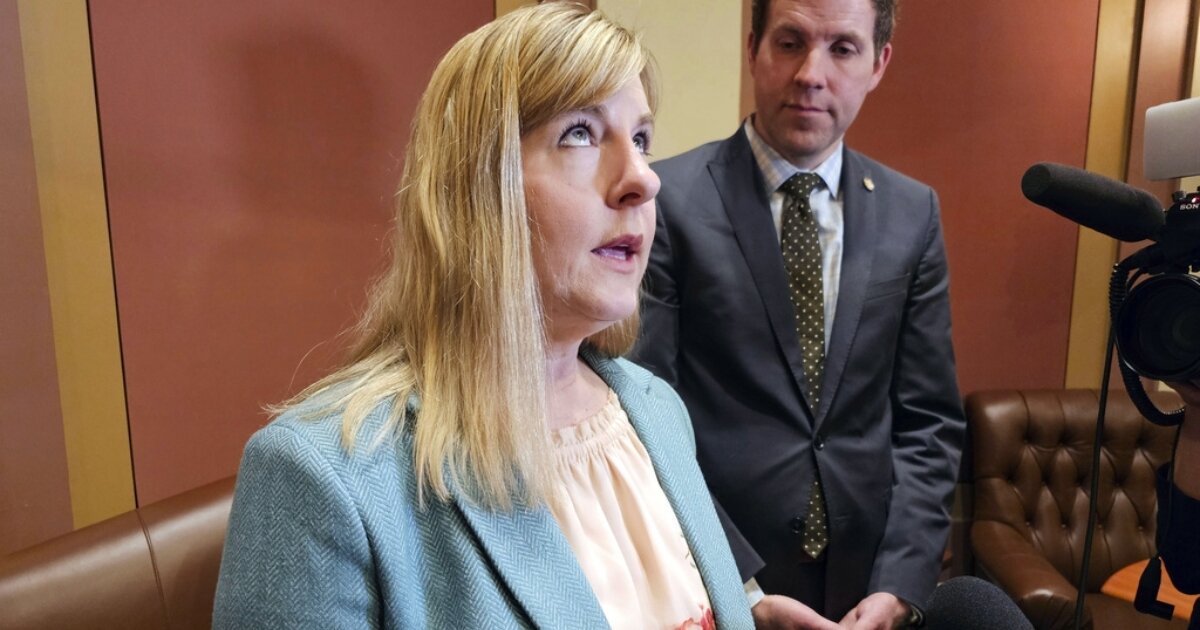
- As the year began, there was a sense of hope regarding the legalization of sports betting in Minnesota for 2024.
- Rifts between horse racing venues and tribal casinos have escalated disputes, putting the bill in jeopardy.
- The Running Aces racetrack has initiated legal action against tribal casinos for conducting unauthorized gambling activities.
Minnesota's sports betting legislation is precariously positioned as conflicts rise between horse racing establishments and tribal factions. With the legislative session set to wrap up this month, HF2000 is facing critical challenges as the deadline looms .
Earlier this week, HF2000 advanced through the House to the Ways and Means Committee. This sports betting legislation seeks to authorize and oversee betting on sports events.
Moreover, HF2000 proposes the establishment of grants facilitated by the Minnesota Amateur Sports Commission while also funding a research project on the gambling behaviors of younger audiences.
Nevertheless, the likelihood of this bill receiving approval in the Minnesota Senate seems discouraging. This is a significant shift from the earlier momentum supporting sports betting.
Given the ongoing disputes between horse racing venues and tribal organizations, the Senate is expected to resist endorsing any sports betting legislation until a compromise is reached among all parties.
Revenue Sharing Source Of Division
In Minnesota, legal gambling currently occurs through two primary channels: horse racing tracks and tribal casinos. According to the Minnesota Indian Gaming Association , there have been 22 agreements negotiated with 11 tribes, paving the way for the establishment of 18 tribal gaming facilities.
At the same time, Minnesota permits two racetracks to legally operate, with Canterbury Park and Running Aces playing important roles in the state’s gambling sector alongside tribal casinos.
In January, the racetracks approached the Minnesota Racing Commission to discuss the potential for approving historical horse racing. Last month, it was pushback from Rep. Zack Stephenson regarding the form of gambling.
"You can select a horse to bet on without knowing which race it pertains to,\" stated Rep. Stephenson. \"A computer randomly determines the race linked to your bet. If the horse you chose wins that race, you receive a payout.\"
The Alcohol and Gambling Enforcement Division likened this setup to slot machines, although racetracks contended that the process had more structure than complete randomness. Frustrated with the situation, the Senate, in March, revised and approved a modified sports betting proposal, SF1949, which included a revenue-sharing model proposed by the tribes.
This legislation would enable tribal entities to provide mobile sports betting options to the public. However, due to the racetracks' opposition, it faced significant hurdles in the path toward legalization.
In a bid to accommodate the racetracks' leadership, the commission ultimately sanctioned 500 historical horse racing machines for Canterbury and Running Aces. While this was a step forward for the horse tracks, it did not sit well with the tribes, who opposed the approval of these gambling devices.
Consequently, the Shakopee Mdewakanton Sioux Community (SMSC) lodged a complaint with the Minnesota Court of Appeals attempting to annul the sanctioning of the historical horse racing devices.
Running Aces Takes Legal Action Against Tribal Casinos, Senator Arrested
The federal racketeering lawsuit brought against Grand Casino and Treasure Island by Running Aces might have dealt a fatal blow to HF2000.
On April 17, the racetrack asserted in its lawsuit that three casinos were conducting games that violated both state and federal gambling statutes.
The lawsuit claims that Grand Casino Hinckley, Grand Casino Mille Lacs, and Treasure Island Resort & Casino are operating illicit card games on their premises.
With tensions high between racetracks and tribes and ongoing litigation, a mutually agreeable solution seems increasingly unlikely. Also, Democratic Senator Nicole Mitchell's arrest on federal burglary accusations adds further complexity to the situation.
Republican Senator Jeremy Miller acknowledged that her absence complicates the chances of advancing sports betting legislation.
"I still believe there’s a possible way forward. It’s a narrow path, but if we can gather all interested parties and work toward an agreement, we might still achieve this,\" Miller noted. \"However, the chances diminish with each passing day.\"
The cutoff for enacting the Minnesota sports betting legislation is May 20.






You must be logged in to comment. Don't have an account? Sign up today .